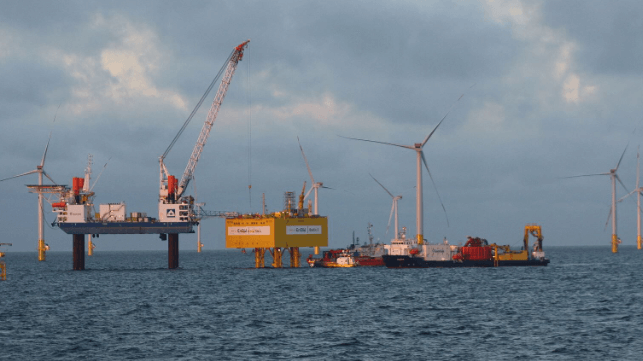Baltic Nations Pledge to Increase Offshore Wind Power Sevenfold

Citing the Russian threat to European energy security, the leaders of eight Baltic nations agreed Tuesday to a massive increase in offshore wind power by 2030. While the investment will help address climate concerns, the primary objective of the commitment is to help make Europe "independent of Russian energy as soon as possible."
At a meeting in Marienborg, Copenhagen, the leaders of Denmark, Germany, Estonia, Latvia, Lithuania, Poland, Finland and Sweden - all NATO members or NATO applicants - marked the signing of a pact to "respond to Russian aggression in the field of energy."
First on the agenda is deeper collaboration on increasing the amount of fuel imported by sea, including LNG - an urgent necessity as Russia throttles down its gas supplies to northern Europe. German and French natural gas reserves are at better-than-expected levels heading into the winter months, but if Russian state energy firm Gazprom fully shuts off the tap, every ounce of imported natural gas will help.
The second, longer-term element is in cooperation on replacing some of the energy from Russia with offshore wind electricity from the Baltic Sea. This will require building out stronger grids and subsea interconnectors between nations and onshore transmission infrastructure, as well as strengthening the region's energy market. In addition, the eight nations pledged to cooperate on cross-border renewable energy and transmission projects, opening the possibility for leases that cross national EEZ boundaries.

that matters most
Get the latest maritime news delivered to your inbox daily.
The most prominent pledge, however, is a promise to increase the region's offshore wind capacity sevenfold, from less than three gigawatts today to nearly 20 gigawatts by 2030. To get there, the partner nations pledged to work on faster national permitting timelines; offshore wind permitting in Europe takes years, and reform is a top priority for the European Commission.
"Putin uses energy as a weapon in the war against Ukraine. We need to put an end to this," said Danish Prime Minister Mette Frederiksen in a statement. "Denmark must deliver a green alternative to Putin's black gas."
